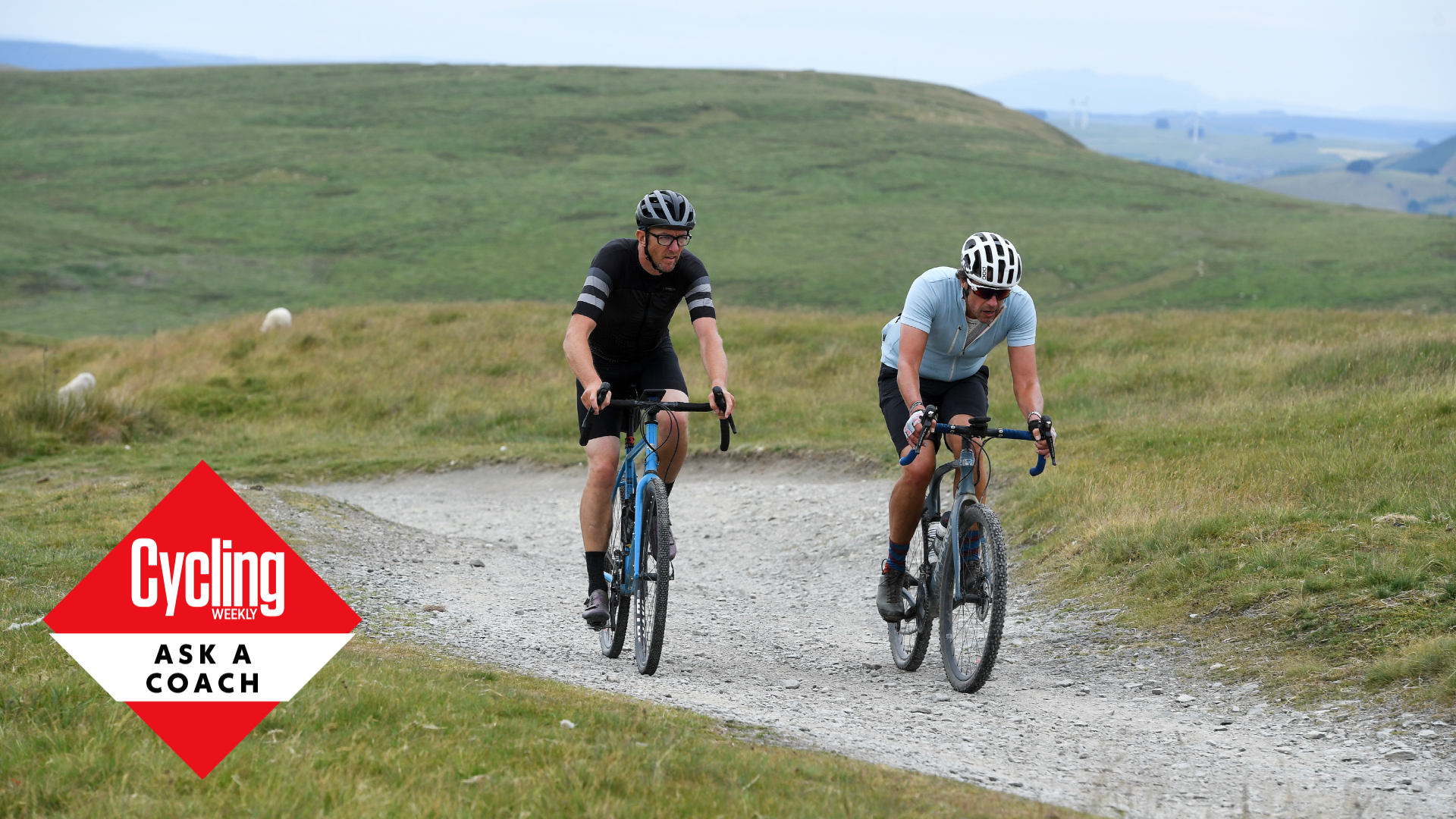Ask a coach: 'Can gravel riding replace impact sports like running and weightlifting?'
Your bones need a certain amount of stress to stay healthy - could the impacts of gravel riding be sufficient?


Low bone mineral density is something that cyclists may be prone to. It’s a problem because low bone mineral density is associated with an increased risk of fracture. The reason cyclists may be particularly at risk is that cycling, unlike other sports such as running, is what we call a non-weight-bearing activity. There is no repeated shock as you hit the ground like in running or stress placed on the bone as in sports such as weightlifting. This means that the stimulus to increase bone density is just not the same in cycling as in other sports.
Could gravel riding be a solution? Cycling coach James Spragg gives us his take...

Sports scientist and coach James Spragg is one of the experts who will be answering your questions in Cycling Weekly's ASK A CYCLING COACH series which comes out every Wednesday. Working both in research and applied settings, he currently runs Intercept Performance Consultancy.
As of right now, there is currently no direct evidence looking into this. Gravel as a participation event is a relatively new phenomenon and the research simply hasn’t caught up. However, we can make some educated guesses. The difference between gravel and road cycling is the vibrations that go through the body due to the uneven surface. Now, some evidence suggests that vibrations can be beneficial in increasing bone mineral density, but whether the vibrations felt during gravel riding are sufficient is unknown.
At this point in time, I don’t think we can conclude that gravel riding will solve the issue of low bone mineral density in cyclists. However, it probably won’t make things worse!
What is a potential solution?
Weight and resistance training is the first thing that comes to mind. Not only will the load placed on your bones during weight training help increase your bone mineral density, but the additional strength gains will likely also help your performance on the bike. Adding some weight-bearing exercise to your cycling training plan is a win-win! I would suggest this over and above running as it's simply harder to get on-the-bike performance gains from adding running to your training plan than lifting some weights.
But strength training alone is not the answer! Interestingly a recent study from Norway found that cyclists that lift weights are also more likely to suffer from low mineral density compared with other athletic populations. The reason for this is that cycling is a weight-influenced sport. If you are lighter for the same power, you will go uphill quicker. However, the way in which cyclists try to achieve lower body mass is not always healthy. Often cyclists spend considerable amounts of time in what we call negative energy balance – i.e. they have expended more energy that day than they have taken in. This reduced energy availability has a negative impact on bone mineral density. This is probably why we see a higher prevalence of low bone mineral density in cyclists compared to swimmers (although the latter probably, on balance, also do more gym work).
The latest race content, interviews, features, reviews and expert buying guides, direct to your inbox!
The verdict
If you are worried about your bone mineral density as a cyclist, which we probably should be, then adding gravel to your riding won’t be the fix you might be looking for - although it probably won’t do any harm either. A much more evidence-informed approach is to add strength work to your training plan and minimise the amount of time you spend with a negative energy balance.
James Spragg is a sports scientist and coach, working both in research and applied settings. When not working with athletes James can be found skiing, climbing, cycling or drinking coffee!
Alongside Dan Lorang and Peter Leo, James runs Intercept Performance Consultancy. Over the last 8 years in various roles, as coaches, performance consultants, performance managers, and sports scientists, Dan, James and Peter have played a role in helping athletes achieve more than 10 World Championship titles, several Olympics medals (including a Gold and Silver Medal in Tokyo 2020) and several Top 5 results in some of the biggest sporting events on the planet (Tour de France, Olympics, World and European Championships). Our single focus is on improving performance in all settings.